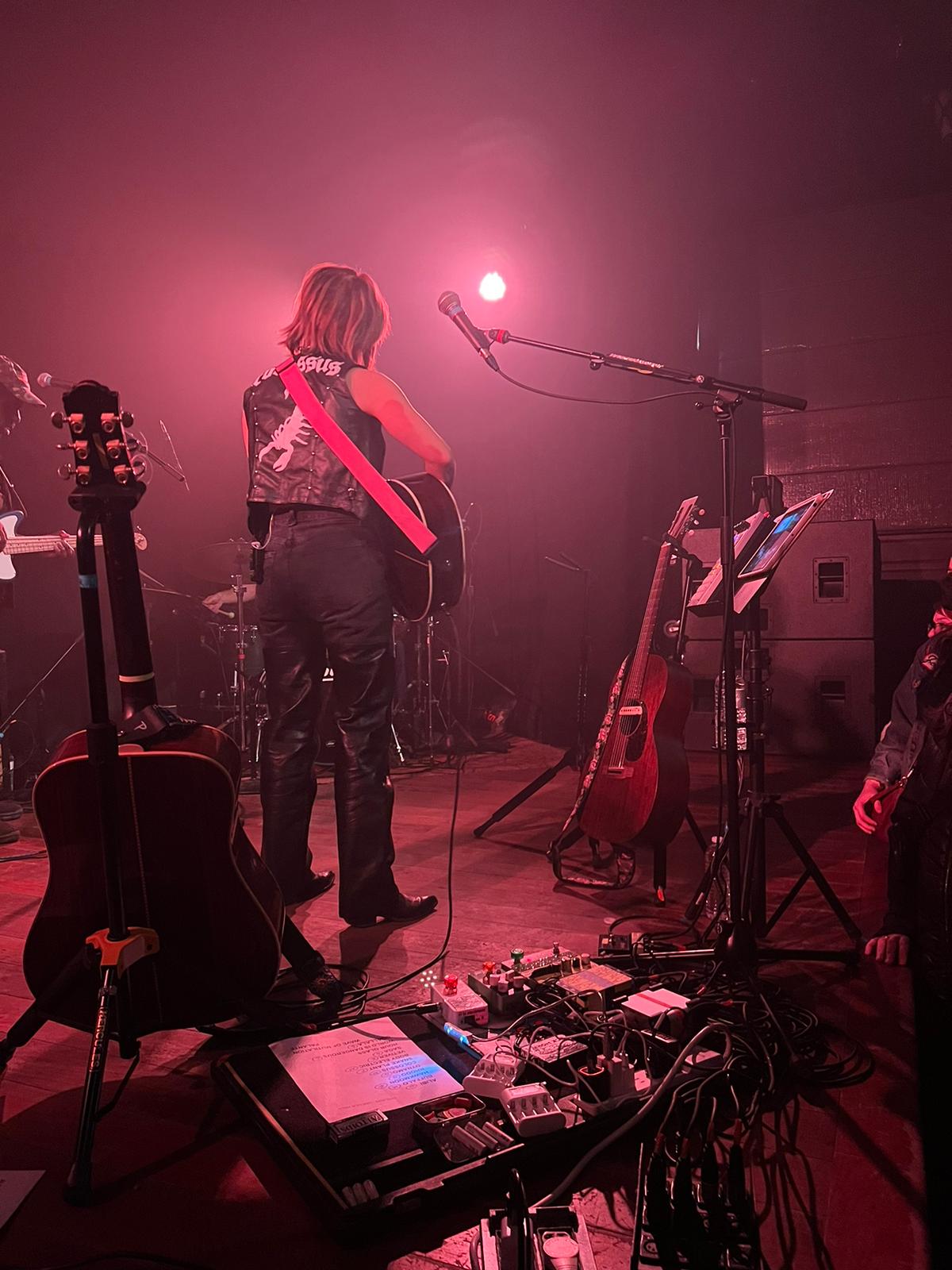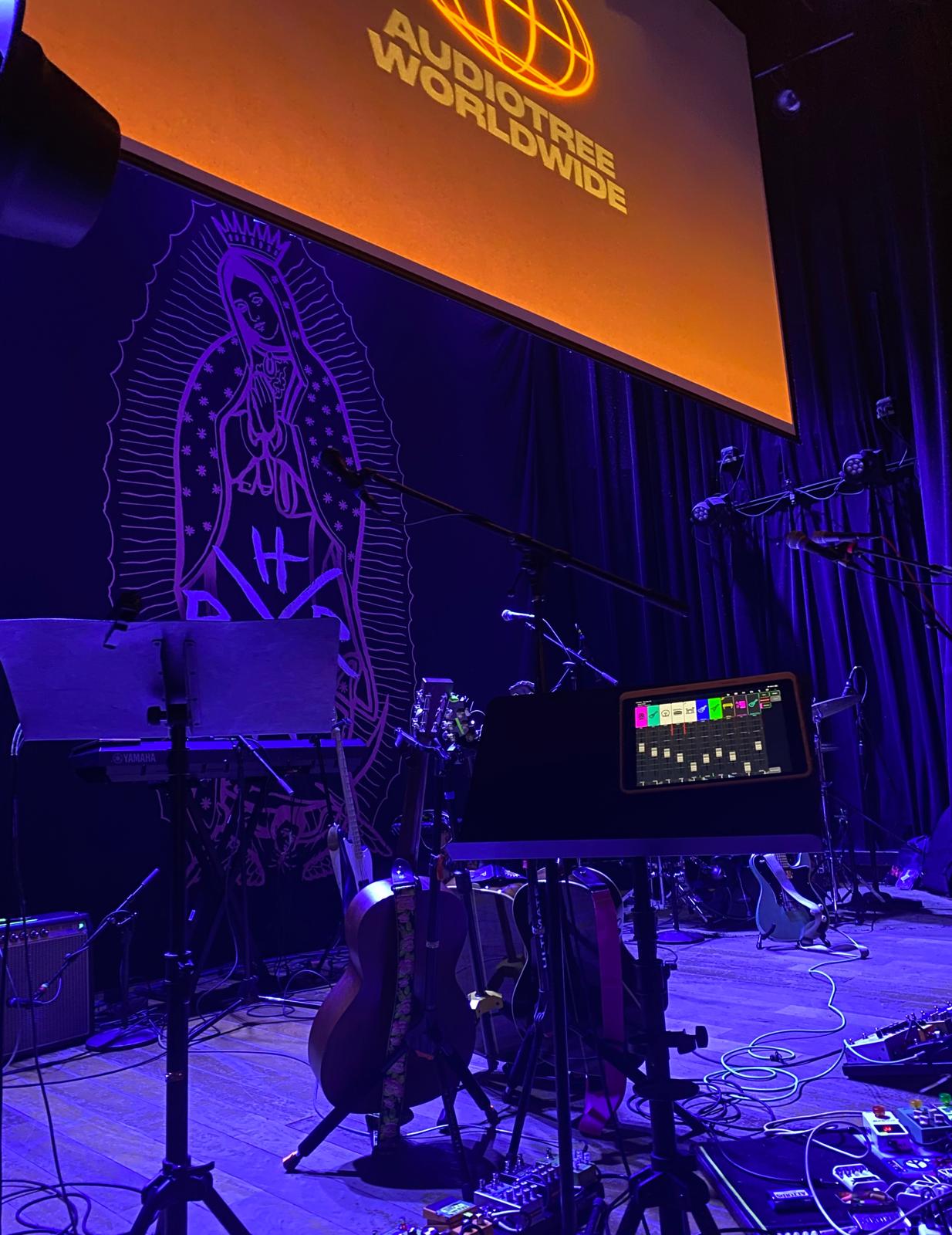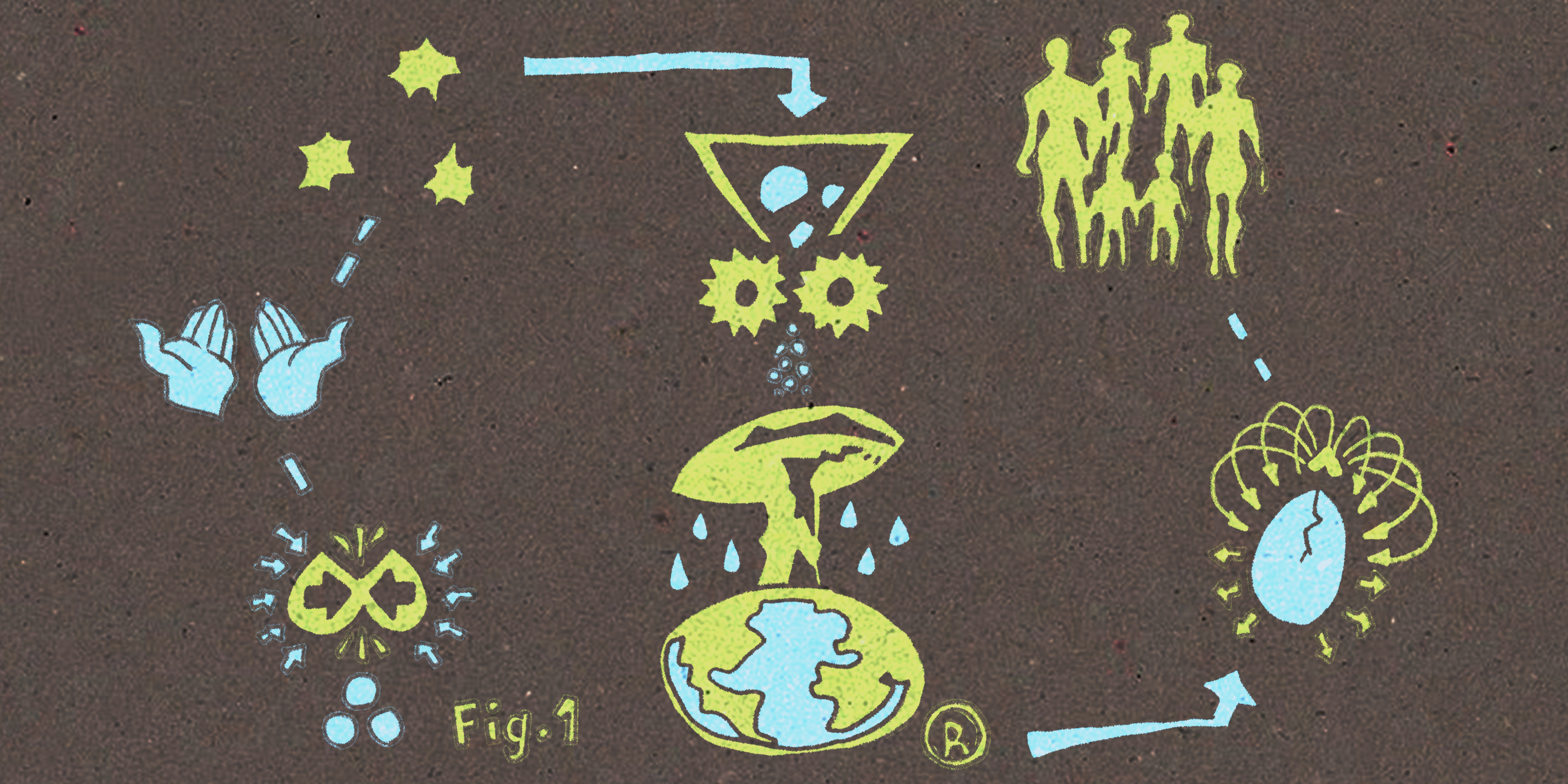Hurray for the Riff Raff’s discography is an example of what it looks like to create community around sharing music
Five months after moving from Panama to Chicago, one of my dear friends introduced me to Hurray for the Riff Raff, a band from New Orleans that blends folk, bluegrass, pop and punk. Formed in 2007, the band is led by singer and songwriter Alynda Segarra, who writes of their experiences as a young train hopper trying to make sense of the systemic violence their communities experience.
Although they cover a wide range of themes throughout their albums, what has made their music memorable has been the way their writing simultaneously gives insight into their journeys while shedding light on workers rights, colonization and collective liberation.

Hurray for the Riff Raff. Photo by Lilly Musgraves.
Their music is the soundtrack I need playing in the background of my life. Something to lean on as I confront the unknown. Being 19 years old in a city that was so different from home left me feeling lost, looking for a sense of belonging or a feeling of home. This is when I first turned to Hurray for the Riff Raff.
I started off with their 2017 album, The Navigator, which follows the story of Navita, a girl who was put to sleep for forty years and then wakes up to see how her home has been gentrified. Segarra seems to have based this character off themselves—after all, they decided to leave their home at the age of seventeen and join squatters, punks and train hoppers on journeys across America.
Segarra doesn’t shy away from elevating the voices of immigrants and their experiences with I.C.E., nor do they shy away from criticizing the institutions that uphold oppression.
Wearing a shirt that said “NO HUMAN IS ILLEGAL” as they performed The Navigator on their set at SXSW in 2017, Segarra sang one of their most moving songs, “Pa’lante,” with the intention of honoring those who are dehumanized by the American immigration system.
They are Puerto Rican, originally from the Bronx, and their pride for their home is visible in their lyrics. Before their final song, for example, they explain that they learned of the phrase “Pa’lante” through the Young Lords, a group that fights gentrification and protects the Puerto Rican population.
“This is a song about if we want to move forward, we gotta know where we came from. And we also need to do it all together. There’s a lot of people that are trying to divide us right now, and we are not gonna let them do that, are we? No. So, Pa’lante, my friends,” Segarra said.
Their words have a feeling of authenticity from the stories of the people they’ve met, and how they’ve impacted their life and perspectives. In “Hawkmoon,” they talk of a friend that they once travelled with, long ago. The song is an homage to this person and they reminisce on the adventures they went on, where they would ride her car across states.
The strength of their artistry lies in being able to detail the violence they see while wandering around, looking for shelter in the hope of collective transformation. Singing “colonized, and hypnotized, be something // sterilized, dehumanized, be something // well take your pay // and stay out the way, be something” I can’t help but think of the emotional isolation immigrants face when dealing with exploitation. At the same time, there is anger and frustration behind the way they sing—feelings that are all just an effect of living in a world where capitalism and individualism reign.

The Virgin Mary is seen as the backdrop throughout the performance. Photo by Gayatri Khatwani.
Throughout their music, the voices of the people they met on their journeys echo, as if coming together to help explain what we are to do in a world that is burning before our eyes. Their first album, It Don’t Mean I Don’t Love You (2009), has stories of longing for friendships, of trying to process death, and of loneliness. Their latest album, The Past is Still Alive, still contains these same feelings, but they are written in a refreshed way, like they’re mimicking our collective experiences of rebirth and change. Despite ranging in genres, their discography is still able to capture what it is like to allow oneself to be saved by the wisdom of people who have been existing independent of institutions for years.
They let themselves fall in love, fall out of love, they pine for their friends and mourn after the ones they lost. They think of their family and of all the families living in Puerto Rico as they plead for the world to change.
“Say goodbye to America // I wanna see it dissolve // I can be your poster boy // for the great American fall.”
Ever since moving here I have found that music spaces, specifically punk spaces, bring a sense of community that provide me with both solidarity and catharsis. The reason for this is because I would like to feel validated and supported in my struggle as someone who is attempting to be viewed as legitimate under the eyes of the government. This feeling is not unique to me, and I like to believe that the chase for home is why people are attracted to certain types of art in the first place.
That is why, when I heard they would be coming to Chicago to perform at Lincoln Hall on March 14, I knew it would be a night I couldn’t miss out on. I had been listening to The Past Is Still Alive on repeat, meditating on the lines that struck me.
Their words from “Life to Save” (2017),“Well it’s getting harder // I’ll just-ah give up the past // Everyday a reminder // Just that nothing can last” rang in my head when I first heard the announcement of their album. I knew that if anyone could capture the desperation I have been feeling lately, it could be them.
In a moment where we are experiencing a pandemic, witnessing several genocides and facing legislation that harms the sovereignty of Queer and femme bodies, I was curious to see how their words were going to act as a tool to bring people together. And in the Hurray for the Riff Raff fashion, they refused to distance themselves from the context they exist in; rather, they recited “If I Must Die,” by Gazan poet Refaat Alareer, killed by an airstrike, during their last song, “Pa’lante”
“If I must die,
You must live
To tell my story
To sell my things
To buy a piece of cloth
And some strings,
(make it white with a long tail)
So that a child, somewhere in Gaza
While looking heaven in the eye
Awaiting his dad who left in a blaze—
And bid no one farewell
Not even to his flesh
Not even to himself—
Sees the kite, my kite you made, flying up above
And thinks for a moment an angel is there
Bringing back love
If I must die
Let it bring hope
Let it be a tale”
Header by Julia Hester




NO COMMENT